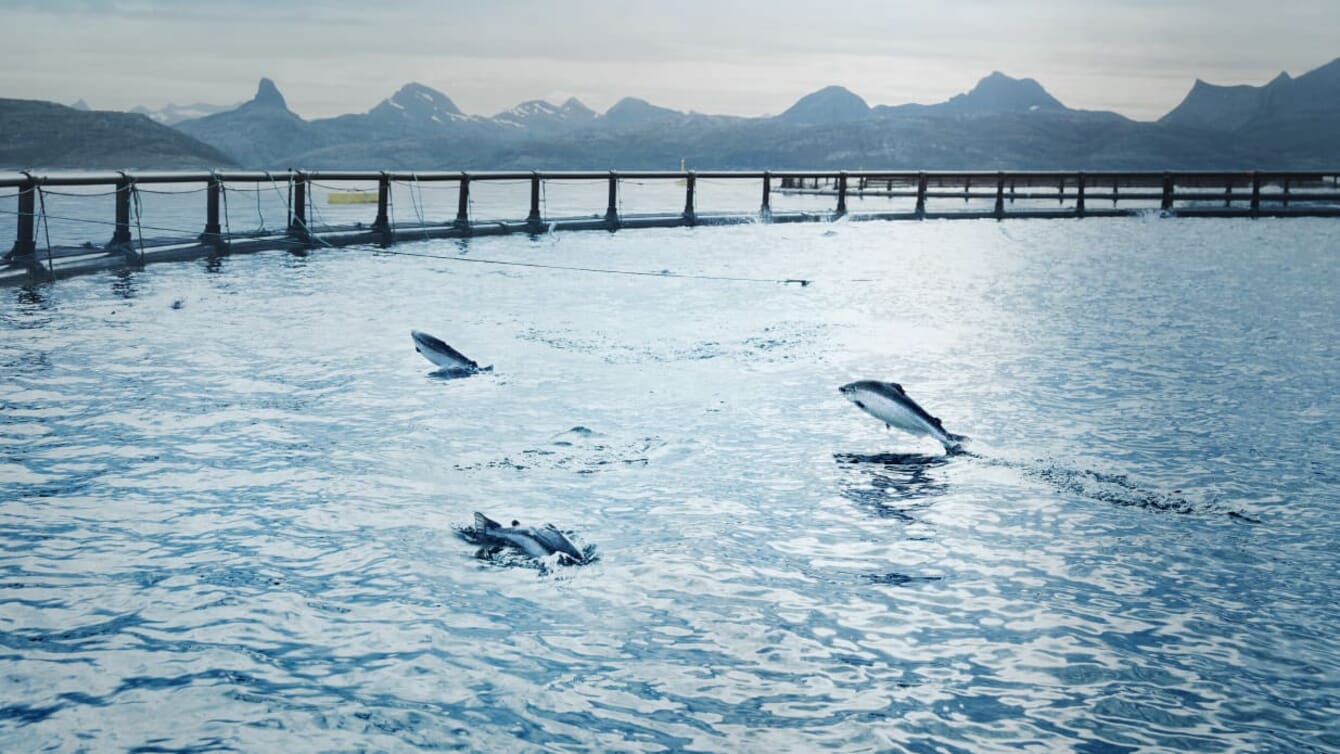
© Cermaq
More electric boats and facilities, the increased use of renewable energy and a shift towards climate-friendly transport and feed are among the key measures planned, making Cermaq one of five aquaculture companies that use science-based climate targeting (SBT).
“Farmed salmon is a climate-friendly food source and with our new measures, we will make Cermaq salmon even more sustainable. Our promise, ‘Seafood for a healthy future’, provides reduced greenhouse gas emissions, less environmental impact and a positive contribution to societies in which we operate,” says Geir Molvik, CEO of Cermaq, in a press release.
He states that sustainable farming has always been important for Cermaq and is crucial for meeting the expectations of society and customers.
“However, it is also a precondition for the future development of the aquaculture industry. We have a great responsibility to contribute to a healthy ocean,” he adds.
Cermaq's climate target is based on the Science Based Target Initiative’s framework. Climate goals and measures are based on the latest climate science and what is required to remain below the Paris Agreement aim of keeping global warming below 2 degrees Celsius. The goals are verified by certified third parties and only contain measures with real climate impact. Thus, Cermaq becomes one of five aquaculture companies globally that set the most binding climate goals for their business.
Cermaq's ambition is to reduce absolute greenhouse gas emissions by 35 percent by 2030, with 2019 as a base year.
“The expectations are increased when it comes to mitigating the drivers of climate change. We contribute with changes in our operations, but also set goals and measures for the entire value chain – from feed production, to transport, to customers. Saying that, in some areas we cut emissions from a low base. We are also calculating our commitments to the climate target with the intention to grow, making the target even more ambitious,” says Molvik.
Feed production and transport to markets account for the majority of the company's total climate footprint.
“Cooperating with suppliers and partners is necessary to improve the climate footprint of feed and transport options. This also requires innovation from our side in products and processing. That’s why we engage in international partnerships to improve climate work in aquaculture both globally and locally,” says Molvik
Cermaq has made plans for major changes to electrification, access to raw materials and transport.
“A simple, but important measure will be to reduce diesel use at facilities and move towards electrical and hybrid solutions. At the same time, energy efficiency measures will make solid contributions to our operations in Canada, Chile and Norway, says Molvik.
Sustainability priorities
Cermaq’s most important measures to reduce climate emissions will include:
- Electrification of facilities and workboats.
- Transition from fossil energy sources towards renewable energy sources/hybrid solutions.
- Energy efficiency to reduce overall energy consumption.
- Set climate requirements for feed.
- Improve feed efficiency through use of new technology development that further reduces the feed conversion ratio.
- Internal R&D projects to reduce emissions.
- Streamline production for using less resources.
- Optimise means of transport to markets – trains, trucks with hybrid energy solutions and lower greenhouse gas emissions.




